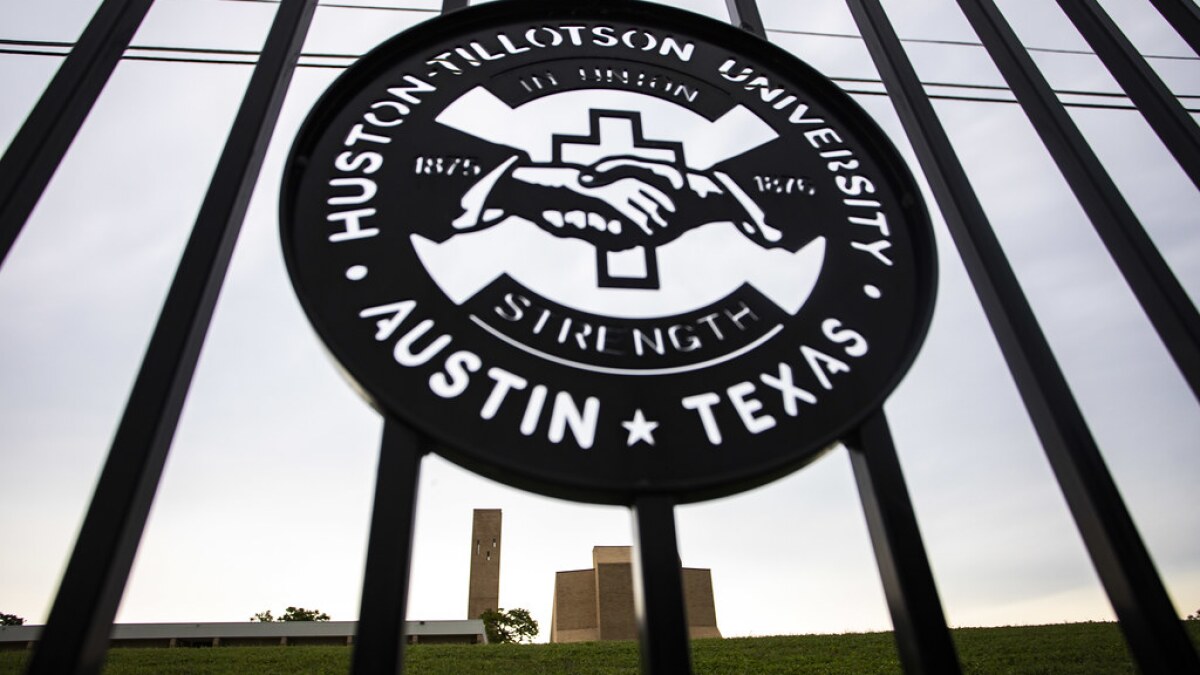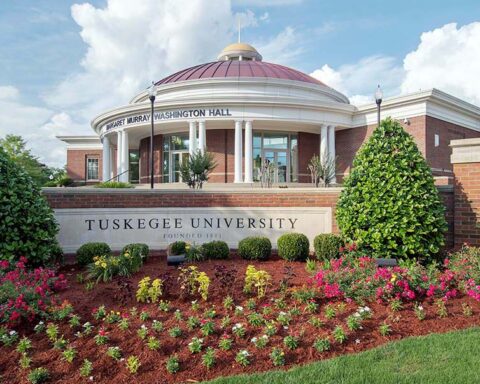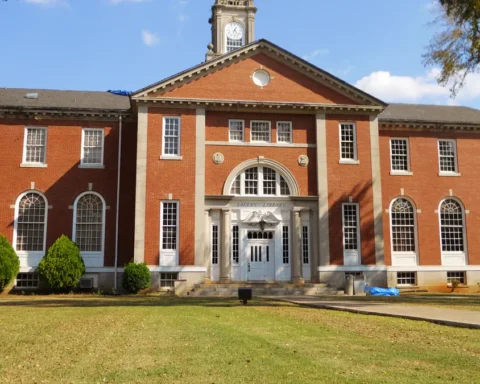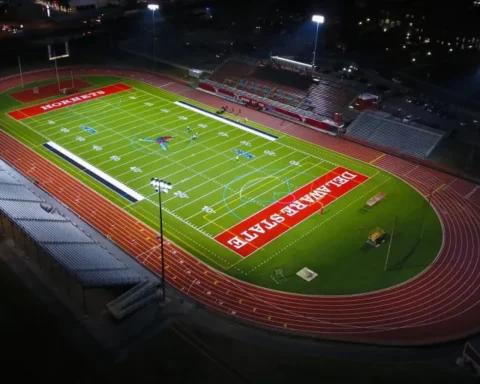Courtesy of Huston-Tilllotson University
On the floor of the Texas House on Thursday, a state representative from the Houston area asked his fellow lawmakers to “meaningfully invest” in historically Black colleges and universities. It was the first time such a resolution had been introduced and passed in the House, he believes.
Lawmakers and students want that to change.
In its first full legislative session, the HBCU Legislative Caucus, chaired by Rep. Ron Reynolds, D-Missouri City, is working to secure more funding and recognition for Texas’ nine historically Black colleges and universities at a time when diversity, equity and inclusion initiatives have drawn the ire of Republican lawmakers at the national and state levels.
Historically Black college or university students and supporters begin their march Friday from Huston-Tillotson University to the Capitol to seek more funding for such colleges. Students from across the state gathered at Huston-Tillotson for the fourth annual Texas HBCU Democracy Schools Conference this weekend.
On Friday, dozens of students from Huston-Tillotson University in East Austin walked to the Capitol in a peaceful march recalling activism from the civil rights movement. The event was part of the fourth annual Texas HBCU Democracy Schools Conference, which brought students from seven Texas HBCUs together for events and discussions on civic engagement and democracy Friday and Saturday.
“It was the students, really, who approached me (and) saw the need” for a caucus, Reynolds said in an interview. “We see it heightened nationally, but these students were seeing it since last session.”
The Trump administration has promised to rid the country of DEI practices, and Texas in 2023 barred DEI offices in institutions of higher education in a move that Republican lawmakers said restored the system to a merit-based approach. Students, however, say those legislative actions make them feel unwelcome.
The political climate has appeared to make HBCUs more popular for Black students seeking belonging.
‘Equal access to all the information’
The HBCU Caucus is advocating to pass House Bill 3296, a proposal that would create a grant program to fund all HBCUs that participate in a new higher education consortium to offer free civic education to students and community members. Reynolds, who authored the bill, said this would help rectify historic disparities in how HBCUs are funded compared with primarily white institutions.
HB 3296 would also help create more informed citizens and voters, said Austin City Council Member Natasha Harper-Madison, who represents the city’s east side.
“People always say, ‘Young people, you have to vote, you have to get involved, you have to participate.’ They don’t teach you how,” Harper-Madison told the American-Statesman in an interview. When people are informed and get involved, “they have ownership, they are a stakeholder in democracy, and that’s what we have to reclaim. And we do that by way of giving everybody equal access to all the information.”
State Rep. Ron Reynolds, D-Missouri City, chats Friday with Austin City Council Member Natasha Harper-Madison at the Texas HBCU Democracy Schools Conference at Huston-Tillotson University.
Both the HBCU Caucus and the democracy conference give students a voice, they said.
As Republican lawmakers seek to offer K-12 students public money to pay for their private schooling — a “school choice” priority for Gov. Greg Abbott — Mason Thompson, a Huston-Tillotson student ambassador for the HBCU Caucus who is also a staffer for Rep. Aicha Davis, D-Dallas, wants the state to fund private HBCUs.
“There’s a historic reason why we’re private,” he said. When Huston-Tillotson was founded 150 years ago, for instance, Black students were not allowed to enroll at primarily white institutions, he said. Today, HBCUs contribute $1.6 billion to the Texas economy, Thompson said, but Huston-Tillotson relies on tuition, fees and donations for its income.
‘These connections last forever’
The HBCU Caucus is a “communications bridge between the legislative session” and campus, Thompson said, through which they can share their ideas and experiences with lawmakers. With the democracy conference, the students gain experience and support on how to make political change, he said.
Through the HBCU Caucus, Reynolds said, students gain access to internships and experience in the Capitol, and he hopes to expand it.
Freeman Crawford, the student director for the HBCU Caucus who also is a staffer for Reynolds, said funding from the Legislature, such as through HB 3296, could help Huston-Tillotson update its dormitories and strengthen weak campus internet connection.
“We wanted everybody that has an HBCU in their district to support this conference because we have problems at our schools. The power of us going to our rep to (say,) ‘We are a constituent of your district, and we are struggling. How can we get more money? How can we do this?’ This caucus is important because we go hand in hand,” Crawford said.
City Council Member Natasha Harper-Madison, right, greets Huston-Tillotson University student Ja’Tavia White at the Texas HBCU Democracy Schools Conference. Students from HBCUs across Texas gathered at the conference to network and attend events about civic engagement and democracy.
Crawford, who also served on the planning committee for the conference, said bringing HBCUs together can show their collective strength and power, and it serves as a way to demystify assumptions about the colleges. Huston-Tillotson is growing its international student population and is very diverse, he said. It also strives to have a large community impact, such as with its first HBCU artificial intelligence conference last week.
Reynolds said the HBCU Caucus plans to talk about the importance of investing in HBCUs on the House floor when the chamber votes on the budget. The caucus’ other goals are to have equitable funding for HBCUs; expand student support and mental health; enhance research; and promote civic engagement.
Niela Williams, a graduating senior at Huston-Tillotson who attended the conference, said she is passionate about health care access and safety, as well as women’s rights.
“HBCUs don’t get a lot of recognition,” Williams said. “We made these schools to be safe because we didn’t have education.”
Even today, Huston-Tillotson feels like “home more than a campus,” she said.
“You build a family,” Williams said. “These connections last forever.”





